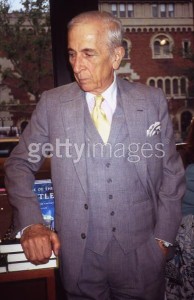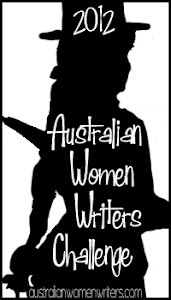On writing
10 May 2011
When I first started using Twitter, I noticed the hashtag #amwriting quite often. I even used it once or twice. That was before I understood well, what it meant. Real writers, who write as a job, for pay, use it. I felt ridiculous using it once I realised that and I immediately stopped.
This is not to say that I know nothing of writing. I do. I have a 70, 000 word dissertation under my belt. I am accustomed to solitary hours, trapped at my desk, polishing sentences, planning, forcing ideas to come.
I know about working on a chapter for weeks only to have it completely fall apart under closer scrutiny. I know about losing work, usually because I have forgotten to backup but once because my bag was stolen – and later mysteriously returned by being lobbed over the fence. Thief with a conscience? I know about willing yourself to stay put, write another 500 words. Write another 1000 words. Finish this page. Then you can go out. Then you can eat chocolate. Then you can drink. I know about the joy an arc of story or argument can bring as it meets its glittering conclusion. I still marvel at some of the sentences I have written in that dense thesis. Did I really write that?
It has been a long time since writing occupied my life like this. It didn’t desert me though. It never really went away, this compulsion, as my notebooks and journals and scraps of paper will attest. It has taken new forms. Last year, for a lark, and to support another writer dear to my heart, I started NaNoWriMo. I knew, really, I was no good at fiction. This provided all the necessary proof. No story. No characters. A measly 5000 words in a month. It was torture, and hard to do with a one year old. My writing companion, on the other hand, wrote and wrote and wrote, her one year old notwithstanding; spurred on by the enthusiasm and the encouragement from the community.
I’d been thinking about writing. The process itself. The act of writing. How to write. How to make time. Not find it, make it. Then I read this.
I start with a yellow lined pad and a pencil. The first thing I do is try to print a sentence. Note that I say try to print a sentence, and print, not write. I use big, block letters. This I look over, change it, rewrite, and try to do another.
…
It sometimes takes me a couple of days before I have five or six sentences in large block letters.
…
It’s like laundry on a clothesline … I can pin up as many as 35 pages in three rows. It helps me get a different perspective: I can see how the scenes move, how the language works, how the sentences flow. I then sit on a chair across the room looking at them through binoculars. But the office I have now is too narrow for that.
This is an excerpt from American journalist Gay Talese, talking about his work. He is now 79 years old. He wrote the famous piece, ‘Frank Sinatra Has a Cold’, for Esquire. What intrigued me the most about this description of writing practise, is that I thought it was a novelist speaking. It sounds like fiction writing; but it is not. Tom Wolfe described Talese as the founder of what he called ‘new journalism’. According to Jose Borghino who wrote the piece* in which these descriptions appear, Talese rejected this description.
Here he is at a book signing in New York. (Getty Images)

Gay Talese
He reminds me of Leonard Cohen, in his sharp suit. Properly dressed. He is from the same era. And this wonderful painstaking craftsman, gave me some ideas. In this review of a series of collections, of bests, including The Best American Essays 2010, Jose Borghino invokes Talese and bloggers in the same sentence. He argues that the ‘slow, fastidious’ writing of those like Talese, is now gone. He says ‘the efflorescence of self-funded bloggers and amateur citizen journalists on the internet is a symptom’ of the decline the economics of newspapers and magazines today.
The ideas I had are these. Firstly, it is not necessary to write fiction to love to write, to write beautifully and to care deeply about the structure, intent and feeling of the language. This thought made my heart glad. I do care about how I write and I do care about how it reads. It was encouraging to read of Talese and his obsessions and block capitals. Secondly, I don’t ever think that the heyday of magazine writing or journalism will ever return to the pace of the 60s. Time was allowed, sub-editors knew their job. This does not mean that writers today do not care, do not know the rules of language and does not mean that bloggers cannot write beautifully.
Might get myself an American typewriter. It will make me write slowly.
* Jose Borghino ‘Annual harvest gathers fine writing’, Essays, The Australian Literary Review, April 6, 2011.


May 17, 2011 @ 19:23:56
What a wonderfully written post. If this is not writing then I don’t know what is. I love Talese’s description of writing. I also love Kylie L’s comment.
And yes, use #amwriting because you are. #sothere
May 15, 2011 @ 22:38:42
Your writing is so fluid and readable that I think you deserve the hashtag #amwritingsothere – I love what you have chosen to reference in this piece. And not having heard of Talese before I enjoyed reading the article and picked out favourite parts like “Sinatra with a cold is Picasso without paint, Ferrari without fuel”.
What is it about yellow lined pages anyway- what is their attraction and origin? They so frequently feature in films, on people’s desks and I seem to recall when I was a lawyer that yellow notepads had some kind of official feel to them. But why? Why not lavender or orange lined notepad – I’m going to now have to research that.
May 11, 2011 @ 08:35:27
Hi Stella, lovely piece. Use the #amwriting hashtag with pride – it’s for all writers.
@shellwrites
May 11, 2011 @ 10:30:44
Yes! She’s right. Use it!
May 10, 2011 @ 21:41:48
Love this. You really capture the joy and agony of writing. I had to really dig deep for my 1000 words today (my writing-days goal) and it was a relief and a pleasure to read Talese’s words. The thing is, you can dick around (technical term) with your work forever, rearranging sentences, trying different metaphors on for size, garnishing with the odd adjective, then changing your mind and removing the garnish… the trick is not just the writing, but knowing when something works, when it ‘s great or even just good enough, when to leave it alone and press on. It’s all a juggle and a journey- but it’s never, ever dull. Lovely stuff. xx
PS. Talese was an early proponent of creative non-fiction, a genre which has really blosomed since. I reckon you’d be great at it.